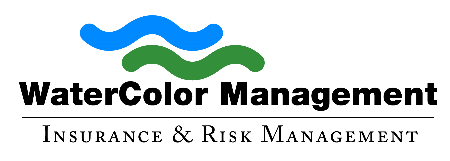
The proper water treatment program can significantly affect any entity regarding insurance coverage. Your clients need to know which coverage to secure, and it’s your role as an insurance broker to advise them appropriately. Thus, there are various strategies to take.
Some Water Treatment Program Tidbits to Take
When discussing their coverage needs, here are some facts to be sure your clients know about water treatment programs.
The Most Appropriate Solutions for Various Problems
Clients who are experts in one type of water treatment may need to realize the limitations of their company’s services. Let them know that while they may offer an excellent product, their method might only be appropriate for some water quality problems. Some common water complaints include manganese or iron, foul odor or taste, excess minerals, heavy metals, and asbestos.
Some water quality concerns are so significant that the best course of action is removing the source of pollution and finding an alternate water supply. Some severe contaminants include pesticides, volatile organic compounds, bacteria, nitrates, nitrites, and sodium.
Methods of Water Treatment
Clients from small companies may need to learn the full range of diverse water treatment methods on the market. One treatment involves distillation, which consists in evaporating dirty water, condensing it, and leaving contaminants behind. There is also reverse osmosis, which entails pushing water through a semipermeable membrane against its concentration gradient. Additionally, there is filtration, a scenario where there is running water through various types of filters, depending on the type of foreign materials present. Ion exchange relies on a resin tank to remove calcium and other minerals that cause hard water.
Clients may also need to know that some people will try do-it-yourself solutions to remedy their bad water. For example, pasteurizing water by boiling it is one method of killing bacteria, worms, and some viruses. However, it does not help the water’s taste or odor and does not continue disinfecting once the water cools down.
Shining ultraviolet light on the water is another home remedy. While UV radiation is effective against bacteria, this method has little effect on other pathogens. Another con is that it relies on expensive mercury arc lamps that consumers must replace frequently.
Insurance for Water Treatment Programs
Many types of water treatment insurance policies are available. Most people know about general liability insurance but may need to realize that specific policies exist to protect their other commercial assets. Ensure they know how to purchase insurance covering product liability, including mold and bacteria. Moreover, the coverage must include pollution liability, cybercrime, broiler, machinery, and property.
What your clients should know about water treatment insurance is that policies are available to companies of any size. Whether they represent multinational corporations or run neighborhood companies from their garages, liability coverage protects their water treatment programs from expensive lawsuits when something goes wrong.
About Watercolor Management
Watercolor Management has insured the water industry for over 30 years. Our policies include unlimited defense cost coverage in the event of a lawsuit against you. Call us at (855) 929-0824 or email info@watercolormanagement.com for a quick quote for your Water Business Professional, Products/Completed operations, Pollution and General Liability Insurance.




